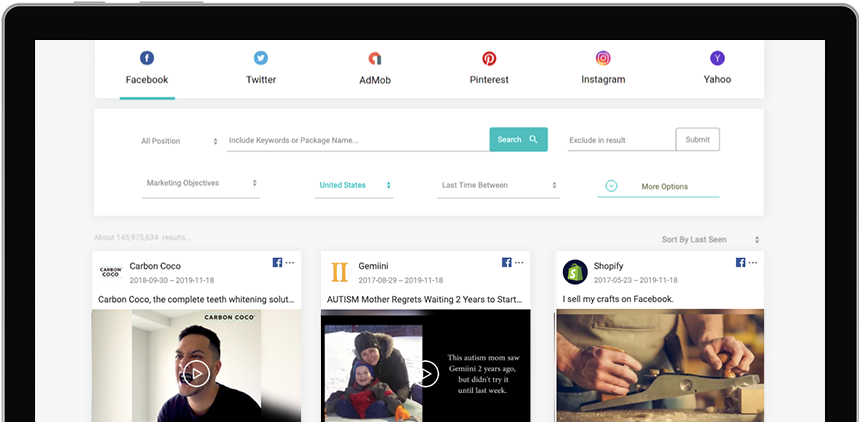Mastering the Art of Media Planning and Buying
In the dynamic realm of advertising, success hinges on adept media planning and buying. These vital elements are the cornerstone of impactful campaigns, resonating with target audiences. In this article, we will explore the indispensable aspects of media planning and buying, making it your ultimate guide to success in advertising strategies.

Introduction to Media Planning and Buying

-
Define Media Planning and Buying:
Media planning involves the strategic selection and deployment of advertising messages through various channels to reach a defined target audience. On the other hand, media buying is the process of negotiating and purchasing advertising spaces across chosen channels. Together, these practices aim to optimize the impact of advertising efforts and ensure the message reaches the right audience at the right time.
-
Importance of Effective Media Planning in Advertising:
Effective media planning is the linchpin that holds a successful advertising campaign together. It not only enhances the visibility of a brand but also maximizes the return on investment (ROI). By carefully selecting the most suitable channels and understanding the target audience, advertisers can create campaigns that are not just seen but leave a lasting impression.
Media Planning Process

-
Research Phase: Importance of Audience Analysis and Market Research:
The foundation of successful media planning lies in the thorough research phase. Audience analysis and market research provide valuable insights into consumer behavior, preferences, and trends. By understanding the target audience's demographics and psychographics, advertisers can tailor their messages for maximum impact.
-
Setting Objectives and Goals for Media Campaigns:
Clear objectives and goals are the North Star guiding any media campaign. Whether it's increasing brand awareness, driving sales, or promoting engagement, having well-defined goals helps in shaping the overall strategy and selecting the most appropriate media channels.
-
Selecting the Right Media Channels:
Choosing the right media channels is a critical step in the planning process. By aligning channels with the target audience and campaign goals, advertisers can ensure that their message reaches the intended recipients. The selection process involves evaluating the pros and cons of various channels, including TV, radio, print, digital, and social media.
Understanding Target Audience

-
Importance of Defining Target Demographics and Psychographics:
In the world of media planning, one size does not fit all. Defining target demographics and psychographics enables advertisers to create personalized and relevant content that resonates with their audience. This understanding forms the basis for crafting compelling messages that connect with consumers on a deeper level.
-
Utilizing Data and Analytics to Identify Audience Preferences:
In the age of big data, leveraging analytics is crucial for refining media planning strategies. By analyzing data, advertisers can identify audience preferences, track consumer behavior, and make data-driven decisions to optimize campaign performance.
-
Case Studies Demonstrating Successful Audience Targeting:
Real-world examples of successful audience targeting serve as inspiration and practical illustrations of effective media planning. Case studies provide insights into strategies that have yielded positive results, showcasing the impact of understanding and targeting the right audience.
Choosing Media Channels

-
Overview of Various Media Channels:
A comprehensive overview of media channels, from traditional ones like TV and radio to modern digital and social media platforms, is essential for making informed decisions. Each channel has its pros and cons, and understanding these nuances is key to developing a well-rounded media strategy.
-
Pros and Cons of Each Channel:
Examining the strengths and weaknesses of each media channel aids in making strategic choices aligned with campaign objectives. Whether it's the broad reach of television or the targeted precision of digital advertising, each channel contributes uniquely to the media mix.
-
Trends and Innovations in Media Channel Selection:
Staying abreast of trends and innovations is vital in the dynamic field of media planning. From the rise of influencer marketing to the integration of augmented reality in advertising, being aware of emerging trends helps advertisers stay ahead of the curve and adapt their strategies accordingly.
Media Buying Strategies

-
Cost-Effective Media Buying Techniques:
Cost-effectiveness is a cornerstone of successful media buying. Negotiating favorable deals, leveraging bulk purchases, and exploring discounts are strategies that can stretch the advertising budget further, ensuring maximum exposure without overspending.
-
Negotiation Strategies with Media Vendors:
Effective negotiation with media vendors is an art that can significantly impact campaign ROI. Building strong relationships, understanding market rates, and negotiating based on data and audience insights are key elements in securing advantageous deals.
-
Importance of Optimizing Ad Placements for Maximum Reach:
Optimizing ad placements involves strategic positioning to maximize visibility and engagement. Whether it's prime-time slots on television or targeted placements on social media feeds, the right placement can exponentially increase a campaign's reach and impact.
Budgeting for Media Campaigns

-
How to Allocate Budgets Across Different Media Channels:
Strategically allocating budgets across different media channels is a balancing act. Understanding the cost-effectiveness and reach of each channel, advertisers can optimize their budget distribution to achieve the desired outcomes.
-
Calculating ROI for Media Campaigns:
Return on investment (ROI) is the ultimate metric for assessing campaign success. By accurately calculating the ROI of media campaigns, advertisers can gauge the effectiveness of their strategies and make data-driven adjustments for future campaigns.
-
Tips for Cost-Effective Media Planning:
Practical tips for cost-effective media planning, such as exploring package deals, leveraging seasonal opportunities, and capitalizing on emerging platforms, can provide advertisers with actionable insights to maximize the impact of their campaigns within budget constraints.
Digital Media Planning

-
Overview of Digital Advertising Landscape:
The digital advertising landscape is vast and diverse. Understanding the intricacies of digital media planning is essential for navigating this dynamic terrain. From display ads to video content, digital platforms offer a multitude of opportunities for reaching and engaging audiences.
-
Importance of SEO and SEM in Digital Media Planning:
Search engine optimization (SEO) and search engine marketing (SEM) are integral components of digital media planning. Optimizing content for search engines enhances visibility, while strategic SEM campaigns can drive targeted traffic to a brand's digital assets.
-
Strategies for Effective Online Ad Campaigns:
Crafting effective online ad campaigns involves understanding the unique dynamics of digital platforms. From social media advertising to programmatic display ads, employing strategies that align with the platform and resonate with the online audience is paramount.
Measuring Success

-
Key Performance Indicators (KPIs) for Media Campaigns:
Identifying and tracking key performance indicators (KPIs) is crucial for measuring the success of media campaigns. Whether it's impressions, click-through rates, or conversion metrics, KPIs provide actionable insights into the effectiveness of advertising efforts.
-
Tools and Analytics Platforms for Tracking and Measuring Success:
A plethora of tools and analytics platforms are available to streamline the tracking and measurement process. From Google Analytics to social media insights, leveraging these tools provides advertisers with real-time data to assess campaign performance and make informed adjustments.
-
Case Studies Illustrating Successful Media Campaigns and Their Outcomes:
Examining real-world case studies provides a deeper understanding of successful media campaigns. These stories of triumph showcase effective strategies, creative executions, and the tangible outcomes that result from meticulous planning and execution.
Emerging Trends in Media Planning and Buying

-
AI and Machine Learning in Media Planning:
The integration of artificial intelligence (AI) and machine learning in media planning is reshaping the landscape. Automated audience targeting, dynamic content optimization, and predictive analytics are just a few examples of how AI is revolutionizing the way advertisers plan and execute campaigns.
-
Personalization and Customization in Advertising:
Consumers today crave personalized experiences. Advertisers are increasingly leveraging personalization and customization in their campaigns, tailoring messages to individual preferences and behaviors. This trend not only enhances engagement but also fosters a stronger connection between brands and consumers.
-
The Impact of New Technologies on Media Buying Strategies:
New technologies, such as augmented reality (AR) and virtual reality (VR), are influencing media buying strategies. Advertisers exploring these technologies are creating immersive and interactive experiences that captivate audiences in ways previously thought impossible.
Frequently Asked Questions
What is the significance of media planning and buying in advertising?
How does audience analysis contribute to successful media planning?
What role do case studies play in media planning?
Why is it crucial to optimize ad placements in media buying?
How can AI and machine learning impact media planning?
Conclusion
Mastering the art of media planning and buying is essential in the dynamic advertising landscape. From foundational principles to cutting-edge technologies, this guide equips advertisers with insights and strategies to elevate campaigns, optimize budgets, and achieve impactful results. By staying abreast of trends and refining strategies continuously, advertisers can navigate the evolving media landscape successfully.